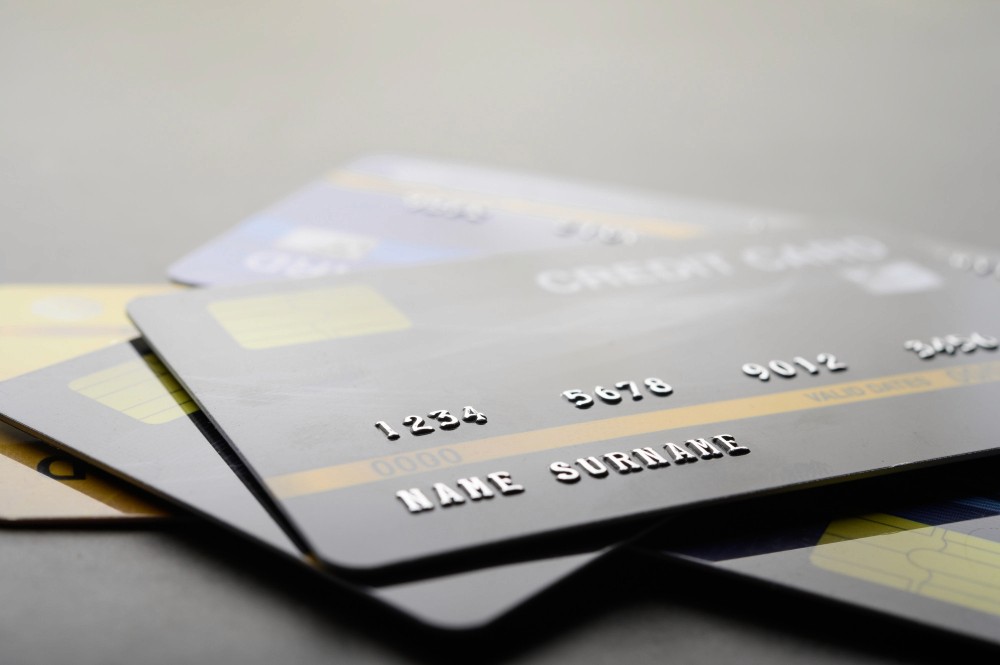It is easy to be confused about the difference between credit cards and debit cards. The confusion is acceptable as both debit and credit cards eliminate the need to carry cash, offer convenience, and even look similar – they both have 16-digit card numbers, PIN codes and expiration dates.
But that’s where the similarity ends. So, what’s the fundamental difference between a credit card vs debit card? The difference is where these cards pull the money from. A debit card takes it directly from your banking account, and a credit card charges it to your line of credit. Let’s learn more!
What is a Debit Card?
A debit card is one provided by a bank and connected to your current or savings account. With a debit card, you can only spend money from your bank account. When you use your debit card to make a transaction, the funds are promptly debited from your associated account.
Notably, attempting to purchase without sufficient cash may result in a failed transaction. If you have an overdraft facility, such transactions might go through. However, your bank may charge you an overdraft fee. It’s safe to say that a debit card is similar to cash but in the shape of a card!
What is a Credit Card?
A credit card is like a handy financial tool that lets you borrow money from a credit card company to make purchases when you need to. When it's time to pay back what you borrowed, you typically have a grace period of about 45 days without any interest charges on the amount you owe.
Plus, when you sign up for a credit card, you are given a customised borrowing limit, which is the maximum amount you can spend using your card. When it comes to getting a credit card, lenders take into account things like your payment history and how often you've applied for credit to decide on your borrowing limit.
As you use your credit card, your purchases add up over time. At the end of each billing cycle, usually every 30 days, you receive a credit card statement. This statement shows how much you've spent, how much you owe, and the due date of payment.
Paying off your entire balance each month on or before the due date can help you avoid paying interest. If you can't pay the full amount, make sure to check the minimum payment at least.
Debit Card vs Credit Card
Check out this table to understand the distinction between a credit and debit card better!
| Features | Debit Card | Credit Card |
|---|---|---|
| Usage | You can use it anywhere to spend money by drawing on funds that you have deposited into your bank account. | You can use the credit card anywhere, and it functions like a mini loan. |
| Transaction limit/Availability of Funds | The availability of the fund depends on how much you have in your account or how much investment you made in your bank account. | The availability of funds is based on your approved borrowing limit or personal line of credit. |
| Repayment Terms/EMIs Facilities | Since a debit card takes out money from your bank account, no repayment is required. No borrowing of money, hence no EMIs. | Since you borrow against your borrowing limit, you need to repay the outstanding amount. You can either pay the minimum due amount or pay the total outstanding amount by the due date. |
| Credit Score | A debit card does not affect your credit score. | If you are not able to make regular payments, your credit score can be affected. |
| Charges | The charges include an annual fee, processing fee, joining fee, etc. | The charges include a joining fee, annual fee, processing fee, foreclosure charges, late payment fee, etc. |
| Security | The bank/financial institution offers low fraud liability in the case of a debit card. | The banks or lending platforms provide high fraud liability and insurance cover for losses incurred from misuse and theft of a credit card. |
| Eligibility | If you are a savings/current account holder, you can get a debit card quickly. | You are eligible for a credit card if you have any of these – healthy CIBIL score or credit history, existing relationship or transaction history with the bank, good debt-to-income ratio, etc. |
| Interest | No interest is charged. | You are charged interest on your purchases. However, if you do not carry the monthly balance over to the next month, there is no interest charged. |
| Rewards | Although there are rewards associated with debit cards, they are not as lucrative as credit card rewards. | You can reap discounts, travel points, cashback and many other perks. |
Which Is Better - Credit Card or Debit Card?
So, are you at the crossroads of deciding between credit cards and debit cards? It all depends on whether you want to spend money currently in your account or whether you are willing to pay off higher amounts later.
If you have a good financial foundation and can pay off large sums on time, a credit card may be right for you. However, if you are concerned about overspending or need to be cautious with your funds, using a debit card may be the best option.
Each of these cards has its advantages and disadvantages. So, utilise whichever one best matches your financial style while remaining prudent about how you handle your money!
The Freo Difference
- Freo (Formerly MoneyTap) is an app-based online lending platform that is a fast and flexible way to get access to funds anytime and from anywhere from your approved personal line of credit.
- You can get instant approval from ₹ 35,000 up to ₹ 5 Lakh. You can withdraw as low as ₹ 3,000 and as high as your approved line of credit.
- You can repay the borrowed amount in flexible EMIs of 2 to 36 months.
- You pay interest only on the amount you withdraw from your approved line of credit.
- You don’t need collateral or a guarantor to apply for Freo’s (Formerly MoneyTap) loan.
- You need to have an in-hand salary of ₹ 20,000/month and a minimum age limit of above 23 years and below 55 years.
FAQs
-
Which is better, credit card or debit card?
Debit and credit cards have advantages and downsides. It is recommended that you conduct research depending on your specific needs before making your decision.
-
Are debit cards and credit cards the same?
No, debit and credit cards are not synonymous. Even though the two have some similarities, there are many significant distinctions between them.
-
Can my debit card serve as a credit card?
No, when you swipe your debit card, the money is automatically withdrawn from your account. Thus, you cannot use it as a credit card.
-
Can I transfer money from my credit card to another account?
Yes, you may use your credit card to send funds to any account using e-wallets or money transfer services such as MoneyGram.
-
Are there any limits on the amount that can be withdrawn using a debit card?
There is a restriction on how much money may be withdrawn using a debit card. However, this restriction varies from one bank to another. The daily withdrawal limit is typically ₹20,000. There is a restriction on how much money may be withdrawn using a debit card. However, this restriction varies from one bank to another. The daily withdrawal limit usually is ₹20,000.
-
Is there a fee for using a debit card?
Debit cards have a small cost. However, most debit cards do not charge any fees for use. Premium debit cards, such as the Platinum card, come with a price.
-
Are charge cards similar to credit cards?
A charge card can help you become more responsible with your spending because you must pay the card's amount each month. A credit card allows you to have a revolving debt that you may pay off over time.
-
Is a credit history required to apply for a debit card?
No, a credit history is not necessary when applying for a debit card.
-
Can credit cards be used to withdraw cash from the ATM?
Yes, in some situations, consumers can use their credit cards to withdraw cash from ATMs. This option is known as a credit card cash advance. It allows cardholders to withdraw a specific amount of money from an ATM using their credit cards and then repay the same amount plus interest and other costs.
-
Can I apply for different credit cards from the same bank?
Yes, you may apply for multiple credit cards with the same bank.
-
What is an ATM card?
An ATM card is any card that allows you to withdraw money from an ATM. ATM cards are primarily used to withdraw cash, check account balances, and transfer funds from one account to another. In contrast to multifunctional credit cards, these cards serve just specialised functions.












